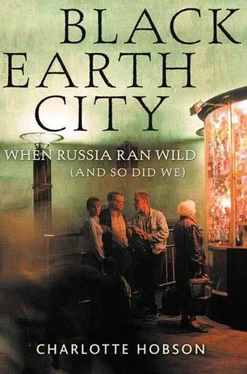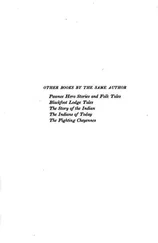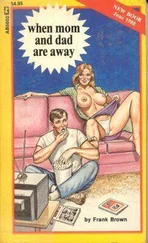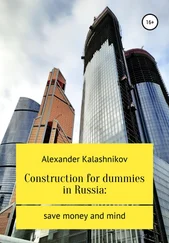“It’s not just that you don’t need brains,” Lapochka added. “They’re a disadvantage. Look at the intelligent Russians: either they’ve left the country or they’re starving.”
I felt chastened.
Soon after, Petya was deemed unsuitable to remain a university student. Professors other than Maria Mikhailovna showed signs of restlessness when Petya took his exams. They wanted a display of the linguistic developments pioneered by Pushkin, knowledge of the social background that gave rise to Pushkin’s verse. The rest of the country might be going to pot, but within the concrete confines of the university the old standards still prevailed. Students still took classes in ideological enlightenment; the boys spent Mondays wriggling across patches of rough grass in camouflage while the girls learned to assemble a Kalashnikov in fifteen seconds and administer first aid to mannequins of the Red Army. The collapse of the Soviet Union did not alter the truth behind Brezhnev’s ideology: Russia is great. Russia is powerful. To her greatness and her power every citizen must pay his homage and make his sacrifice, as our parents and grandparents did. Why else did all the Soviet martyrs have to die? Anyway—look at this boy. He’s quite plainly a degenerate.
Petya sat before his teachers with a fixed smile and attempted to interest them in Buddhism. Nirvana, he suggested, was a civilized type of afterlife, a Communist type, even. Then he went out and got drunk and had a fight with the doorman at the university cafeteria. He wasn’t taken to court but that was the end of his student days.
His mother wept and took the matter up with the bureaucrats, but it turned out she needed more than her invalid’s pension to get the decision overturned. So instead she exchanged her father’s medals for a wad of greasy rubles, counted out by an old friend of hers—an engineer now turned taxi driver and antique dealer—and booked Petya an appointment for an alcoholism cure.
“Hmmm, been having a few too many, have you?” said the doctor cheerily. “Your mother’s paid me in advance for the pleasure of fitting you with a capsule. You know how it works, don’t you? A classy little container of poison under the skin of your arm. It sits there all snug and not causing you a moment’s trouble, until you have a drink. Partial dissolution of the casing follows, and yolki palki! you feel sick as a rabbit. Outcome: you stay off the stuff. How do you like the sound of that? You’ve got to be careful, though. You can do yourself an injury if you go on a real binge.”
Petya sat on a chair looking faintly green. His head was pounding. He was desperate for a drink. “Listen, doctor.” He raised his eyes. “This is going to do me no good. My system won’t take it. What do you say to splitting the cash and you get to keep the capsule?”
The doctor studied him for a minute, then measured his blood pressure. He checked Petya’s reflexes and shone a light in his ears. “Well,” he said at last. “Sixty-forty, and you’re on.”
Petya slept a lot that winter, grew thinner and older. Once or twice Mitya and I stood outside his window and called “Petyuk!” and he appeared in his robe. He sat down with us outside and lit up a ready-rolled joint, his eyes huge, almond-shaped, and expressionless.
How is a man to live? In the old style, this was our subject when we sat in the yard under the gaze of his black eyes. And as the post-Soviet world grew increasingly grotesque, Petya decided that the only sincere way of life was in the mind. He became a zealot. “From henceforth I have decided to live by the seasons,” he announced to us all. “In the summer—alcohol. In autumn, the new harvest of grass. In the winter, fireworks and speed. And in the spring, all damp and tender—the only thing for it is opium.”
“Petya is a dualist, you understand,” Lapochka said. “He sees that freedom lies in the spirit, not the body. The demands of the world—to earn a living, to get a degree, to covet and desire and envy, there’s no difference between any of them!—they’re all temptations that distract one from matters of the spirit. Petya is not irresponsible. Quite the opposite—the irresponsible ones are the people who devote their lives to career and family at the expense of the soul.”
Petya saw my face and laughed. “Don’t listen to this antisocial nonsense!” he said, and changed the subject. I never knew whether Lapochka was expressing Petya’s ideas or his own.
Alcohol, of course, was always available. But it didn’t satisfy Petya. “In reality,” he used to say, “I do not like these official intoxicants. They make you stupid and lustful.”
Autumn was a pleasant season. Cannabis was for sale all over the place, even if Lapochka’s neighbors couldn’t help. But when the winter set in, with month after month of dark, cold days, Petya needed to go faster and further. Then he’d try the university research laboratories for amphetamines—he had an acquaintance there, a panda-eyed girl who’d help him out. It wasn’t such a smooth journey, though. A couple of times her supplies gave Petya’s mother a scare.
Finally the thaw came, and with it heroin from Central Asia. In April a group of us went out to a dacha one weekend. The breeze was exhilarating, life was stirring in the woods. The others hurried on, leaving Mitya and me to gaze at the birds wheeling above the trees. By the time we joined everyone they were lying on the sofa and smiling beatifically, apart from Petya, who stood and looked them over.
“All of this free market, it is just as stupid as our Soviet materialism…” he began. “Now people think they were wrong all those years to believe in Communism, because it never gave them glossy washing machines and American sneakers. But they don’t understand. Any philosophy which sees as its highest aim washing machines for all, whether it achieves that by collective efforts or individual, is poor and mean. Do you see?”
“What about your mother?” I meant that she needed him.
“My mother—she suffocates me with her preventative medicines, her meals, her ‘Eat up!’ her obsession with the flesh when she is almost a cripple. She of all people should know that the flesh is not important. Everywhere it is the same. In the street—shops, posters, people shoving each other to get the last tin of pork, beggars—why don’t they just die? They’d be happier. Even the church is all money, money, gold icons, fat priests, and people hoping their loathsome flesh will be preserved for all eternity. It’s all disgusting.” He grinned at us. “If only I were religious, how people would admire me.”
The police didn’t think much of Petya’s theories. In fairness, they didn’t think much at all. They arrested him one drunken evening and took him to the lockup, where they advised him that such carryings-on were bad for his health. To push the point home they broke a couple of his ribs and gave his kidneys a good bruising. His mother blanched and put him to bed, but he couldn’t calm down until he’d downed the Lily-of-the-Valley cologne he’d given her for International Women’s Day.
The ribs healed, leaving Petya breathless but apparently stronger than ever. He wore the same thin little jacket and trousers, out of which his bony, bruised arms and feet protruded; his skin turned waxy. He moved with jerky, horrible energy and he was always making plans. After Victory Day, when he tried to crown Spartacus with laurels, he disappeared for several days. Then he suddenly called Lapochka at five in the morning and said, “Let’s go to Central Asia. In the summer. We’ll study the way of the dervishes.”
His aunt Ludmilla said, “He’s not long for us.”
Читать дальше












